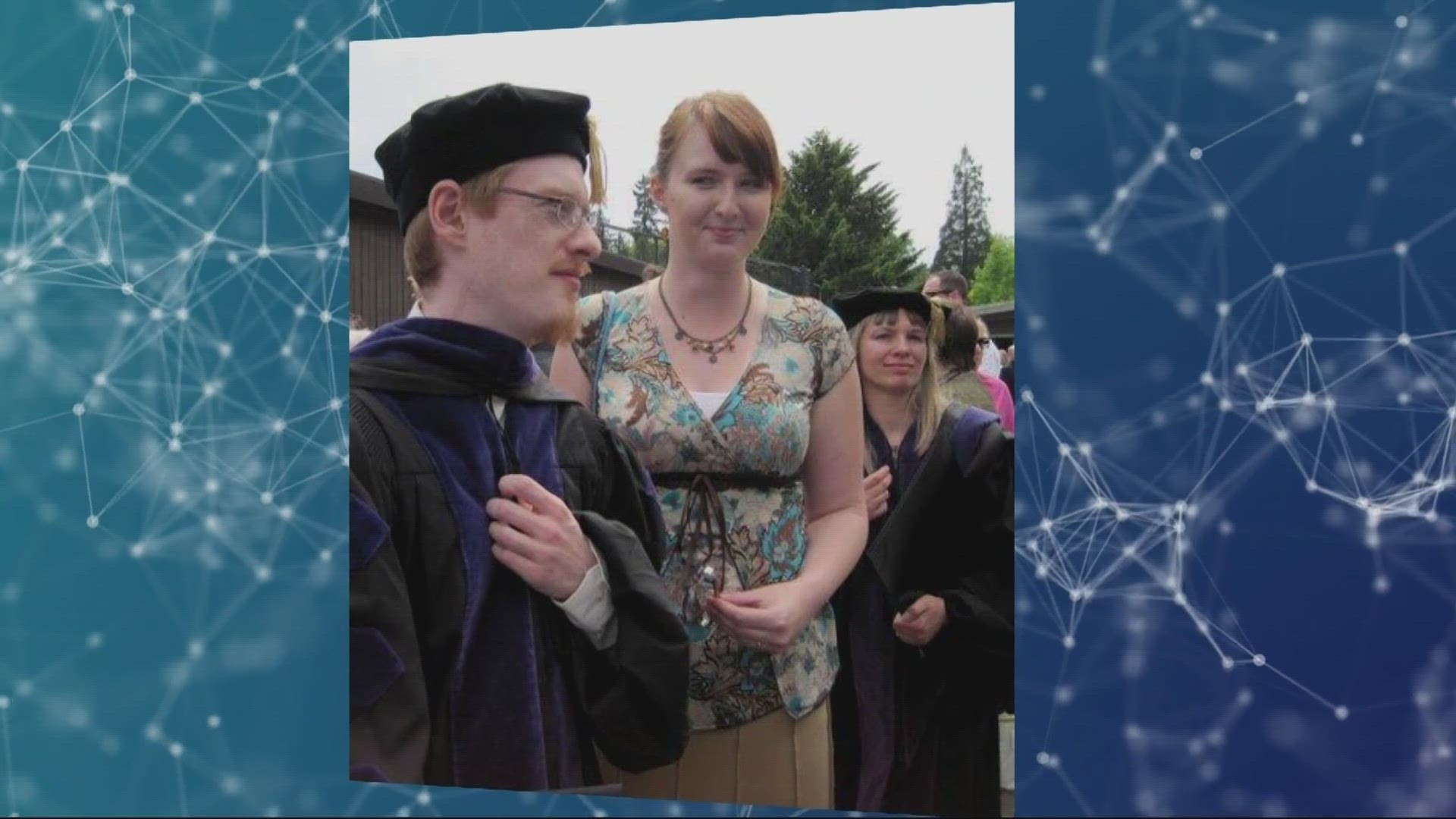OREGON, USA — A Portland man with epilepsy is now able to pursue his dreams, thanks to an implantable device that helped bring an end to his debilitating seizures.
Bill Pippel had his first seizure in 2006.
"Prior to my 21st birthday, I woke up one morning in the hospital without a whole lot of memory of how I had gotten there," he recalled.
There were more after that — about three a month.
"I had no control over when I might have a seizure," Pippel said. "Every seizure day is really three days — at minimum — in order to try and recover from that, either because I've thrown my body around and hurt myself in that regard, or just trying to get cognition back."
Pippel was diagnosed with epilepsy, a brain condition that causes recurring seizures. Oregon Health and Science University (OHSU) doctors say about 1 in 26 people are diagnosed with epilepsy. The seizures and other symptoms that come with it can make everyday life challenging.
There are many different types of epilepsy, and for Pippel, medication was not the answer.
"Over the course of six, seven years of treatment there, I ran through double-digit numbers of anti-epileptic drugs with very minimal success on them," he recalled.
During that time, Pippel did his best to live a normal life.
"I was more or less housebound when I wasn't in school," he said.
Even with several seizures a month, he pursued his dream of becoming a lawyer.
"I had a whole lot of support from Katie, my now-wife, in order to get me to law school classes that were running from 2009 to 2013," he said. "So that at least got me out of the house and continuing to move forward with my education and life goals."
In 2016, Pippel's doctor at OHSU told him about an implantable brain device designed to eliminate seizures before they start.
"The little computer is able to record electrical activity and tell us if he's having seizures or not, and which side they're coming from," explained Dr. Lia Ernst.
Ernst added that in Pippel's case, the device did even more — it collected data about what was going wrong.
"These devices are thought of as a help rather than a cure. But this specific device — because it gives you all this information about what's happening in the brain — it was able to lead to a cure," Pippel said.
A year later, doctors were able to use that information to remove the part of Pippel's brain that was contributing to his seizures. After going through the second surgery, Pippel became essentially seizure-free.
"There's no other term for it aside from life-changing: going from being housebound and now able to be a practicing personal injury attorney," Pippel said.
And while his diagnosis took him on a detour in pursuing his career, his journey landed him where he was meant to be.
"I found a firm here in town called the Kang Law Group that was willing to take me in, despite the fact that I passed the bar in 2013 but didn't have any work experience until 2019, once I was able to finally get out of the house," he said.
Ernst said there are lots of different kinds of surgical options for people with epilepsy, and once they get referred to a center like OHSU, the patient is evaluated to find the right one.

